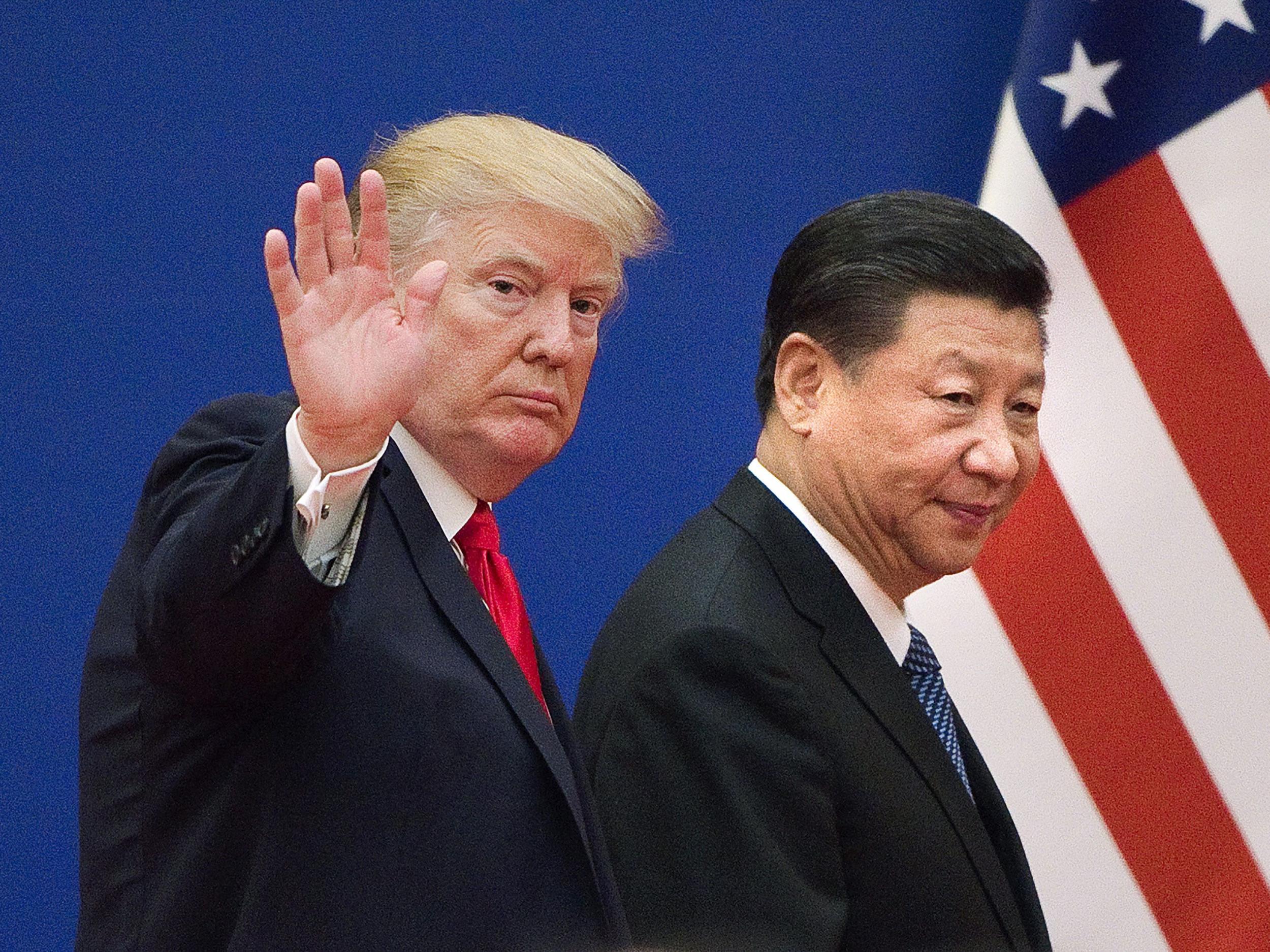The Huawei saga is really a fight between US and China over who will dominate the global economy
The battle for supremacy is on a knife edge


The Huawei saga is getting rough, and it is going to get much rougher. This is not just about the commercial future of the world’s largest telecom equipment manufacturer and second-largest mobile phone maker, though that is a huge story indeed. Nor it is just about the rumbling trade war between the US and China, though that too is huge. It is about which country dominates global technology over the next 30 years, the US or China – and at one remove, which will dominate the world economy.
Huawei faces a two-pronged attack. Put at its simplest, America’s trading partners are under pressure not to buy its commercial equipment on security grounds, while consumers outside China itself won’t choose Huawei phones if they can’t get speedy access to Android upgrades. The way these tensions may play out are discussed by my colleague James Moore here.
Huawei is interesting because it is becoming a test case. Can pressure from the US shut it out of global equipment markets? The answer to that, for most markets at least, is probably yes. Most developed countries forced to pick between the US and China will plump for the US. For emerging markets, the balance of advantage is a bit different – for Chinese investment is huge and is transforming (on China’s terms) African infrastructure. But you don’t want to pick a fight with the US.
But at a consumer level, the winner is not clear at all. For example at the moment the US utterly dominates global social networks, with five of the top 10, led by Facebook, YouTube and WhatsApp at the top. But the other five, led by WeChat, are all Chinese.
You could say, with some justification, that China is only able to challenge America because it has protected its own companies from foreign competition. But it would be absurd to think that as the Chinese economy becomes the world’s biggest and its universities pump out millions of science graduates, that it won’t be an aggressive, and in some areas, successful challenger.
In ranking the two rivals, the US has a head start. It also has greater experience and a track record in developing both the hardware and software that consumers want. It has trust, or at least a reasonable degree of it, though anyone with experience of dealing with US companies will have experienced some pretty disgraceful business practice. It is also the magnet for global talent.
But China has advantages too. It has a supportive government that is in some respects more business-friendly than the US one. (For example Chinese politicians want to support Huawei while some US ones want to break-up Facebook.) It allows some technologies, such as face recognition, to be applied more freely than the US does. That will encourage faster development. It has a lower cost base, important with things like batteries.
Contrast the successes Chinese car firms have had in rescuing weak European manufacturers, such as Volvo, with the failures of US ones, also with Volvo, and no one should assume that the US will automatically come out on top.
However, the US does have the ability to reinvent its economy, as it has shown again and again. Go back 30 years and the great fear in the US was Japan, which was outperforming the American economy on a whole string of measures. Then the Japanese boom ended. Growth stalled, and while Japan is still calm and comfortable, it no longer has global ambitions. Many of its giant companies, including Sony and Toshiba, have struggled, and the focus of innovation has shifted back to the US.
The world of the giant high-tech corporations is a brutal one. Look at what has happened to Nokia and to BlackBerry. Both still exist as brands but are shadows of their former selves. No one should underestimate Huawei, but it is under fire and will be for the years to come.
As for the wider fight, the next battleground will be Artificial Intelligence. It is hard to bolt down the story. There is too much information, indeed so much that we need AI to help us to sort it into bite-sized chunks. But viewed from 40,000 feet China and the US look evenly matched. And that is what scares America.
Join our commenting forum
Join thought-provoking conversations, follow other Independent readers and see their replies
Comments